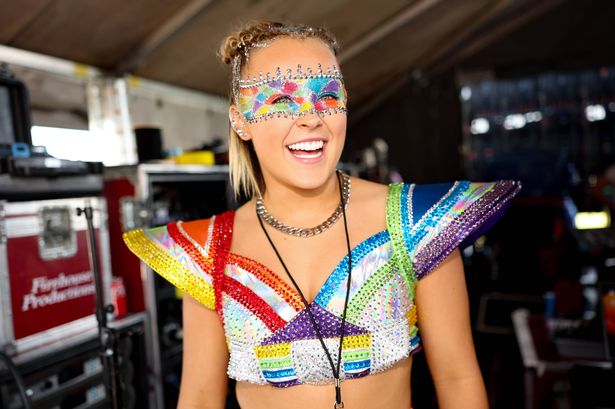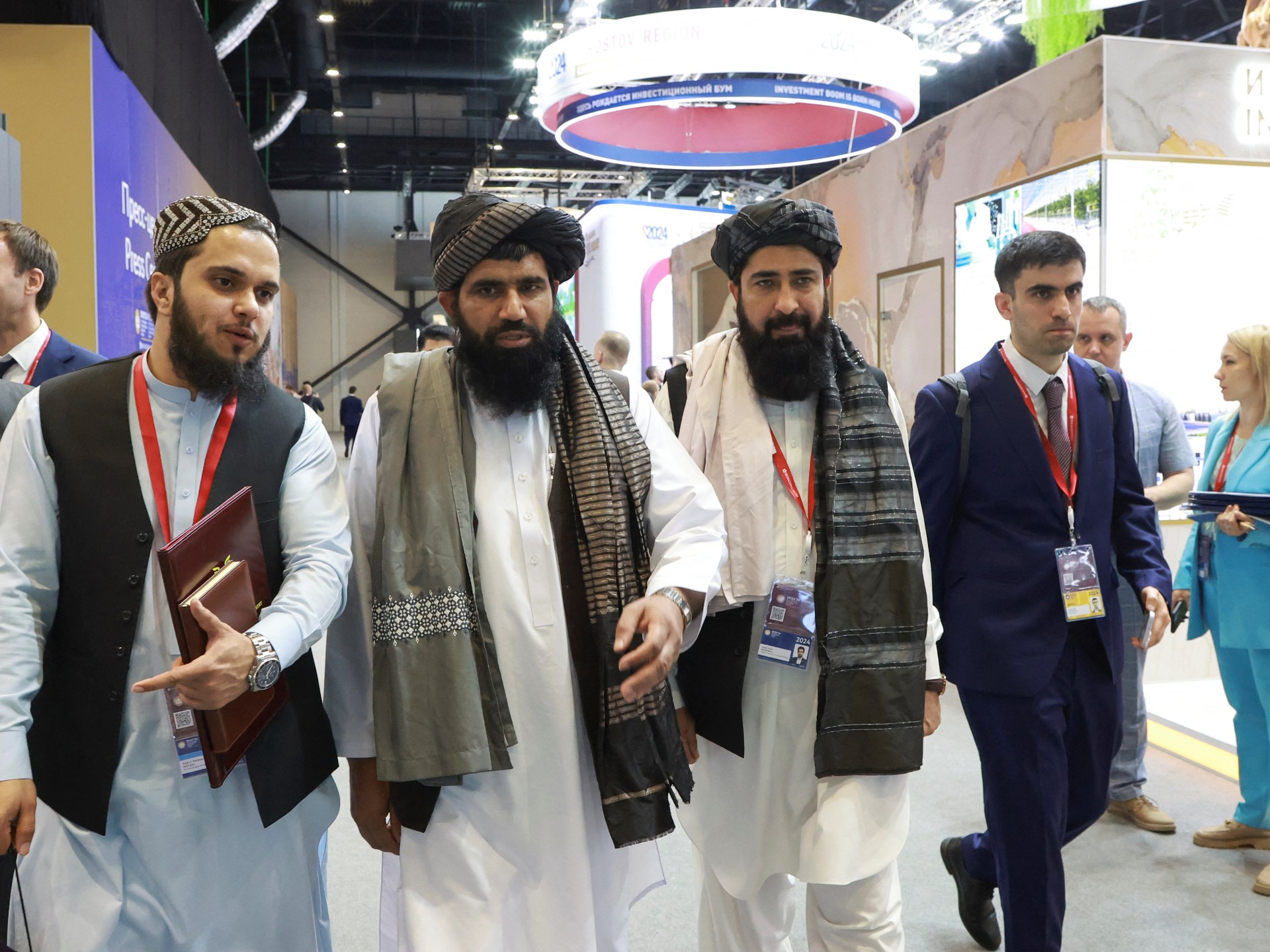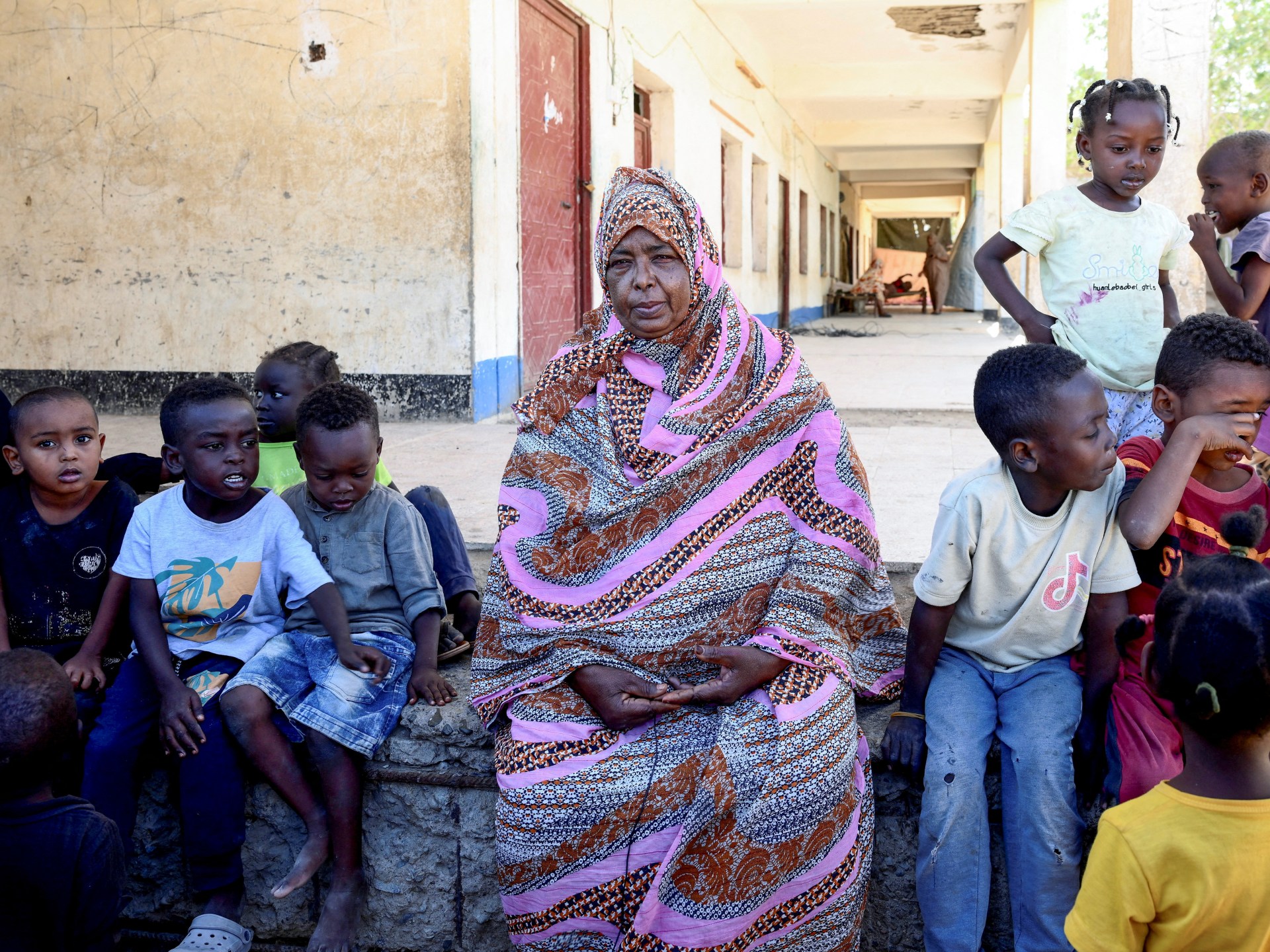When Sudan’s paramilitary Rapid Support Forces (RSF) took over most of the country’s capital Khartoum in the early days of the war, the youth-led civil society initiative Hadhreen kept its food kitchens – a vital lifeline for those in need – open.
It was risky. Countless examples of RSF violence against civilians and looting have been recorded since Sudan’s war started in April 2023.
Hadhreen didn’t escape that violence. A spokesperson described to Al Jazeera an episode in August 2024 when the RSF looted supplies from a kitchen and arrested the supervisor.
The supervisor’s fate was unknown until after the RSF was driven out of Khartoum by the Sudanese army on March 27.
“We discovered that the detained supervisor – whose only ‘offence’ was providing meals to helpless citizens through the kitchen – was martyred in the detention centres of the Rapid Support Forces,” Hadhreen told Al Jazeera.
The army’s recapture of Khartoum last month appeared for some to be a turning point in the devastating two-year war that has torn Sudan apart since it erupted on April 15, 2023.
But it is not just the RSF that has attacked civil society activists on the ground.
Earlier this year, a number of workers in Emergency Response Rooms (ERR), grassroots networks that have led the humanitarian response since the war erupted, told Al Jazeera some of their colleagues had been killed by the army or army-aligned groups in Khartoum North.
At the time, Al Jazeera sought comment from army spokesperson Nabil Abdullah but received no response.
So, civil society actors inside and outside Sudan are watching sceptically, unsure of their role in a post-war Sudan, or if they will be sidelined as they have been for two years.
With social and political polarisation making neutrality impossible and conditions on the ground worsening for activists, many of them told Al Jazeera civil society is being strangled in Sudan.
Sudan’s youth activists
The recent history of Sudanese youth-led resistance committees started in 2010 when they actively worked on political awareness, voter registration and nation-building.
They took centre stage during the 2018/2019 revolution that overthrew Omar al-Bashir and truly came to the fore in October 2021 when two generals, the army’s Abdel Fattah al-Burhan and the RSF’s Mohamed Hamdan ‘Hemedti’ Dagalo, orchestrated a coup against the civilian transitional government.
The resistance committees organised protests, highlighted abuses by the state security apparatus and coordinated resistance and advocacy efforts with both local governments and international actors.
When war erupted between the Sudanese Armed Forces (SAF) and RSF in Khartoum on April 15, 2023, these committees became the ERRs, taking on the core response to civilians’ needs, filling the vacuum left by the state.
It was “a deliberate decision to focus on addressing the basic survival and humanitarian needs of people” that led to forming these ERRs, Nada Wanni, an independent Sudanese researcher and consultant, told Al Jazeera.
As of October 2024, a United Nations Dispatch communication said there were at least 700 ERRs in Sudan, providing food, health services, childcare, or whatever their communities needed.
But while the number of ERRs was rising, “the operational space for civil society has significantly shrunk,” the Hadhreen spokesperson told Al Jazeera, adding that: “The SAF and the RSF have imposed significant obstacles on our operations.”
On the ground, the danger to activists trying to support people is real and immediate.
“These actors and groups are not able to engage in political discourse or political action,” Wanni says.
“Should they do that, they’ll immediately be labelled as affiliated to one side of the war or the other. They’ll be targeted, harassed or arrested and unable to do their humanitarian work.”
Activists have to “negotiate” with one or both sides so they can carry out their humanitarian work – “negotiation” that is usually deemed as collaboration by one side or the other.
The Hadhreen spokesperson says the organisation’s volunteers have been “interrogated, detained, and faced severe threats … kidnappings, looting and killings”.
The impossibility of neutrality
In October 2023, a civilian political bloc came into being – Taqaddum, headed by former Prime Minister Abdalla Hamdok and comprising political parties and civic society, as well as armed factions.
At first, it was seen as “neutral” and the best alternative to the two warring armies, but that unravelled as Taqaddum found itself accused of being pro-RSF and that the political parties within it were not inclusive of all of civil society.
Then, in February of this year, a political tremor shook Sudan as the RSF said that it was going to form a parallel government, claiming there would be civilian-led governance in areas it controls in Sudan.
It took part of Taqaddum with it, the breakaway group naming itself Taasis (Foundation). Its members having taken positions in the parallel government, which was officially declared on Tuesday.
The rest of Taqaddum has formed Somoud (Resilience), its members rejecting the establishment of a parallel government.
Analysts have told Al Jazeera that this split could work to the benefit of Sumoud since it could distance itself from the RSF and better connect with Sudanese civilians.
As the political class outside Sudan seems to have taken sides, civil society activists on the ground who wish to remain neutral face a heavy personal cost.
While civilian and political activist Mohamed Elhadi believes that a fundamental step towards a better future is a genuine civilian response that rejects both warring factions, he worries that that is not possible in the current atmosphere.
“Both sides have weaponised war rhetoric… The government labelled antiwar voices as [RSF] supporters, while RSF supporters argue that advocating for peace aligns with maintaining Sudan’s inherited colonial-era state and its historical privileges.
“The … polarisation … [has] made it easy to discredit any independent civil efforts advocating for peace, with calls to end the conflict often dismissed as being aligned with foreign interests,” Elhadi adds.
“In Sudan, you cannot say anything, neither about the government nor about the [RSF]; you can never speak your mind,” says 28-year-old Abdurahman, who volunteers to teach English to displaced Sudanese people in Cairo.
“If you talk about what you are seeing over there, you will be arrested, or maybe they kill you and nobody will know about it,” Abdurahman sighs as he remembers neighbours, friends, and even his brother-in-law, taken by the RSF.
This war, says Elhadi, is seen by civil society actors “as a deliberate attempt by anti-civilian forces to obstruct Sudan’s democratic transition”, one that, even as the capital is liberated, looks further and further away.
The future
Despite their vital role in organising on the ground, Sudanese civil society groups have found themselves sidelined in negotiations on Sudan’s future, hemmed into a more “humanitarian” role rather than being at the table when peace and post-war political processes are discussed.
Besides, whenever conversations do take place, logistical hindrances and military restrictions to free movement result in those present predominantly being people who fled the country and who may not be able to accurately communicate the pressing needs of those still in Sudan, which are constantly evolving.
However, analysts argue that any negotiations on Sudan must include civil society because it has the capacity for grassroots organising that a political class, which has been largely outside Sudan for two years, will not have.
But civil society is not a homogeneous entity that can step up to a negotiating table, and as such it too bears some responsibility for making sure it is heard, development and civil society consultant Abdel-Rahman El Mahdi argues.
He believes that civil society lost public trust over the past 20 years as fragmentation and a lack of resources lessened the “potential for civil society to play a meaningful role in … future transitional processes”.
Part of the problem may lie, however, with international actors who have been approaching the Sudan file in search of “quick results” and easy interlocutors, El Mahdi continues.
As such, he argues, “international actors need to shift their focus from short-term interventions to a long-term strategy for supporting civil society in Sudan.”




